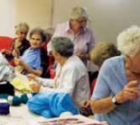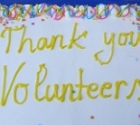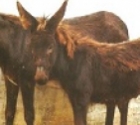
Although approximately 650,000 Israelis live abroad, many of them dream of returning home one day, when they are rich enough, or educated enough, or tired enough of rain in summer. They used to be called yordim – Israelis who have reversed the Zionist ideal and “gone down” from the land, instead of making aliyah. Today their title may be more politically correct – “Israelis living abroad” – but their homeland wants them back as much as ever.
Now some of them are coming.
A new spirit of idealism is sweeping through the next generation; some of the children are coming back to Israel and joining the army, often bringing their parents back too. And the numbers are growing. Garin Tzabar is one of the projects that is helping children of Israelis, or Jewish high school graduates who have lived outside the country for many years, to return and join the Israel Defense Force for a full army service. Over 80 percent of them remain in Israel after the army; about 30 percent bring their families home in their wake.
Garin means “core” or “seed” and is a term used in Israel for a group of soldiers who go into the army together. In Garin Tzabar’s case the Israel Scouts Movement helps its members adapt to life in the army even before they land in Israel. The movement arranges five seminars in the year before their aliyah, familiarizing them with subjects such as Israeli culture, politics, society and the army. Once they arrive in the country the new soldiers are settled on a kibbutz, which provides them with a warm, safe environment throughout their service. Each member is “adopted” by a kibbutz family and gets a bedroom, bathroom, kitchen and a small living room. There are group meetings and cultural activities and Shabbat services. For the first three months a few Israeli soldiers live with the group, helping the members to prepare for the army.
“The kibbutz was my home throughout my army service,” says Yael, a graduate of Garin Tzabar. “Even today I often visit my adoptive family. On kibbutz we all went through the same things. When I cried and was homesick, they were there for me. When I had my ceremony at the end of basic training, and my parents couldn’t come, the whole Garin, my adoptive family, and my counselors from the Israel Scouts were all there.”
The Israel Scouts in the United States are known as Tsofei Tzabar and have approximately 3,500 members in 15 different “tribes.” Their members are mainly children of Israelis and the meetings are run in Hebrew; love of Israel is a central issue. Not surprisingly a large percentage of the graduates come back to Israel, through various programs.
One such alumnus is Naomi, who enlisted in the army through the Scouts. “I was born in the United States to Israeli parents,” she explains. At home we spoke Hebrew. I went to Tsofim Tzabar (Israeli Scouts) in Palo Alto, and every summer I visited Israel. Even though I never lived here I knew that I wanted, and needed, to join the army. I wanted to understand my place in the society here, and to contribute. I didn’t have friends here and the army was a jumpstart into being part of the country.”
Jumpstart it may be, but jumping into the army alone, with no-one to cook for you on your free Shabbat, and no-one to do your laundry or send you care packages, can be a daunting experience. In 1990 three graduates of the Israeli Scouts in California decided that they wanted to take up that challenge and join the army as “lone soldiers”, leaving their parents behind in the United States. They turned to their emissaries and the idea of Garin Tzabar was formed. In 1991 20 young Israelis returned in this framework. This year 150 youngsters signed up, and the numbers and scope of the program is growing from year to year. This year’s Garin includes the first group of religious soldiers, and also has more than 40 new immigrants whose parents are not Israeli; young adults who decided to leave their native lands and join the IDF.
The Garin attracts all kinds of young Jews – the Finnish daughter of Haredi parents, whose mother converted to Judaism, twin boys from California who enlisted in the middle of the Second Lebanon War and two brothers who joined a third brother already in the program. This year’s intake has soldiers from Australia, the United States, New Zealand, Italy, Germany, Canada, England, Scotland, Venezuela, Columbia, South Africa and France. The soldiers go through the normal recruitment process; a high percentage become officers and members of elite units. Of the 93 members of the Garin of 2005, for example, 15 are already officers.
Garin Tzabar accepts young women between the ages of 17-23, and men of 17-24, who have a certificate of good conduct (i.e. no criminal record). They must be high school graduates who are committed to the program, have a basic understanding of Hebrew, and have visited Israel before. The numbers of applicants are growing from year to year, and, according to Lior Seidel, director of Garin Tzabar in Israel, would grow even more if additional funding could be found.
Tzofim Garin Tzabar program is organized by the Israel Scouts Movement and supported by the Ministry of Absorption, the Jewish Agency and the Hagshama department. “Nefesh B’Nefesh” also helps with funding, as does the army, but the program is in need of a donor who could push up the numbers enormously.
For more information on how to join the program, or to help with a financial contribution, see www.Israelscouts.org or call Lior Seidel, director of Garin Tzabar in Israel: Office: 03.6303677, Cell: 054.2440127
 News for Modi'in
News for Modi'in Esra Aid to the Blind Coffee Morning
Esra Aid to the Blind Coffee Morning Netanya News
Netanya News A new website in English - on Volunteering - Launched in Israel
A new website in English - on Volunteering - Launched in Israel Help Needed for Abused Horses and Donkeys
Help Needed for Abused Horses and Donkeys Heather's Heseg
Heather's Heseg Pamela Peled
Pamela Peled